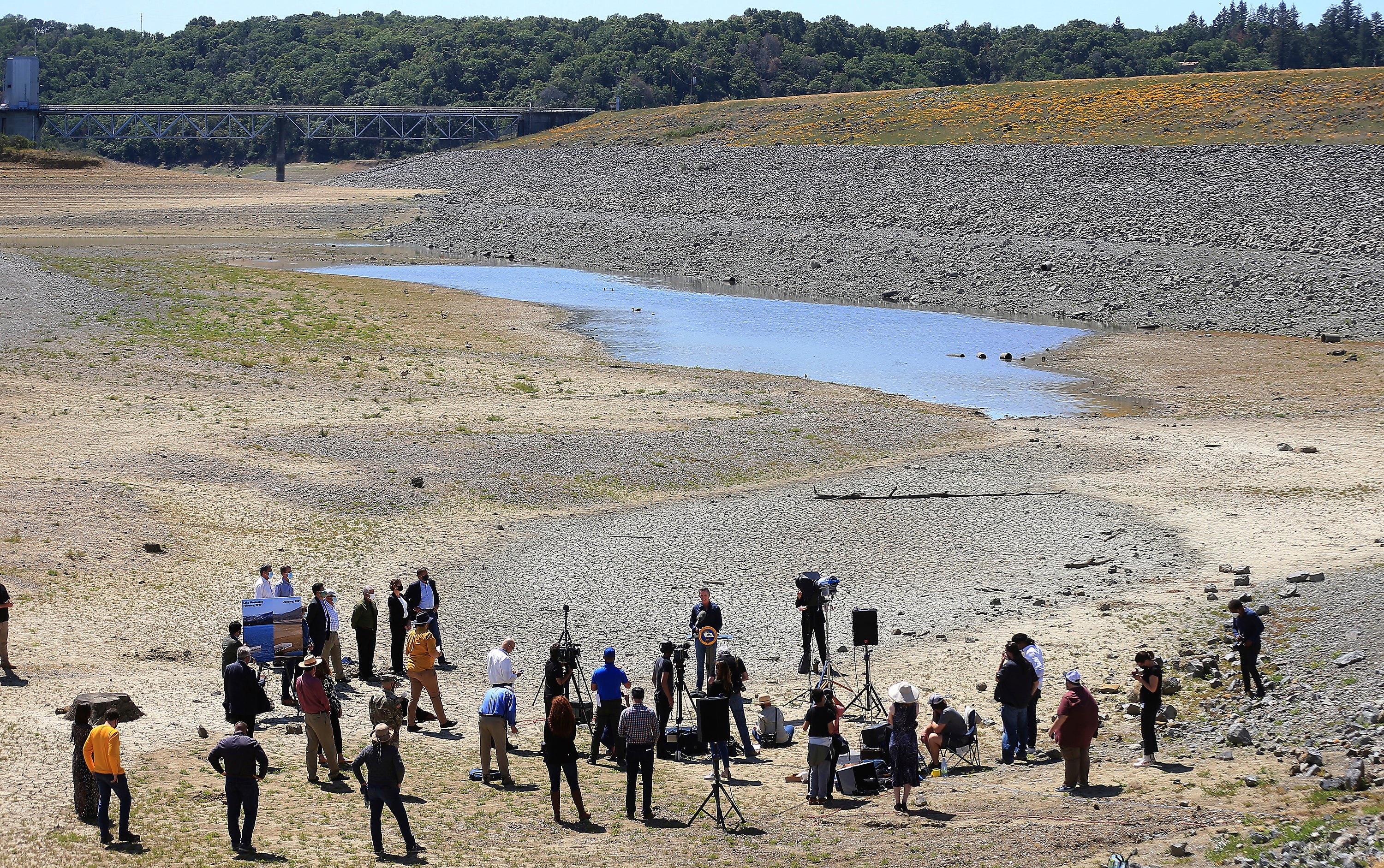California declares drought emergency for one third of the state
California governor also announces a $5.1bn water infrastructure and drought response plan

Your support helps us to tell the story
From reproductive rights to climate change to Big Tech, The Independent is on the ground when the story is developing. Whether it's investigating the financials of Elon Musk's pro-Trump PAC or producing our latest documentary, 'The A Word', which shines a light on the American women fighting for reproductive rights, we know how important it is to parse out the facts from the messaging.
At such a critical moment in US history, we need reporters on the ground. Your donation allows us to keep sending journalists to speak to both sides of the story.
The Independent is trusted by Americans across the entire political spectrum. And unlike many other quality news outlets, we choose not to lock Americans out of our reporting and analysis with paywalls. We believe quality journalism should be available to everyone, paid for by those who can afford it.
Your support makes all the difference.After an exceptionally dry spring, officials in California have announced that at least a third of the state is now experiencing a drought emergency.
“With the reality of climate change abundantly clear in California, we’re taking urgent action to address acute water supply shortfalls in northern and central California while also building our water resilience to safeguard communities in the decades ahead,” California governor Gavin Newsom said in a statement. “We’re working with local officials and other partners to protect public health and safety and the environment, and call on all Californians to help meet this challenge by stepping up their efforts to save water."
Currently, 41 of 58 counties in the state – which accounts for nearly 40 million people – are experiencing drought conditions. Officials fear that the excessive dry conditions will result in an especially dangerous wildfire season.
Last year, wildfires scorched 6,562 square miles of land in the state. Fire officials fear that the drought conditions could result in a similarly record-breaking burn.
The state was last under a widespread drought emergency from 2012 to 2016.
Snowfall in the state's mountain ranges was lower than average this year, only reaching 59 per cent of its average spring snowpack by 1 April.
When that snow melts, it feeds the state's water sources. A lighter-than-average snow pack means less water will be available for use by the state.
It also means drier land, which may help fuel wildfires over the late spring and summer.
As a result, officials are encouraging Californians to take water conservation efforts.
“It’s time for Californians to pull together once again to save water,” Wade Crowfoot, the secretary of the California natural resources agency, said in an issued statement.
Residents have been urged to limit their water usage by taking shorter showers, checking their pipes for leaks, limiting how often they water their lawns and outdoor plants, and not letting the water run while brushing their teeth or washing dishes.
Mr Newsom announced a $5.1bn water infrastructure and drought response plan in response to the worsening drought emergency in the state.
“Shoring up our water resilience, especially in small and disadvantaged communities, is imperative to safeguarding the future of our state in the face of devastating climate change impacts that are intensifying drought conditions and threatening our communities, the economy and the environment,” Mr Newsom said in a press statement. “This package of bold investments will equip the state with the tools we need to tackle the drought emergency head-on while addressing long-standing water challenges and helping to secure vital and limited water supplies to sustain our state into the future.”
The governor is also proposing an additional $1bn to help Californians pay their overdue water bills.
The bulk of the $5.1bn package - a total of $1.3bn - will be used for water and wastewater infrastructure "with a focus on disadvantaged communities."
Join our commenting forum
Join thought-provoking conversations, follow other Independent readers and see their replies
0Comments